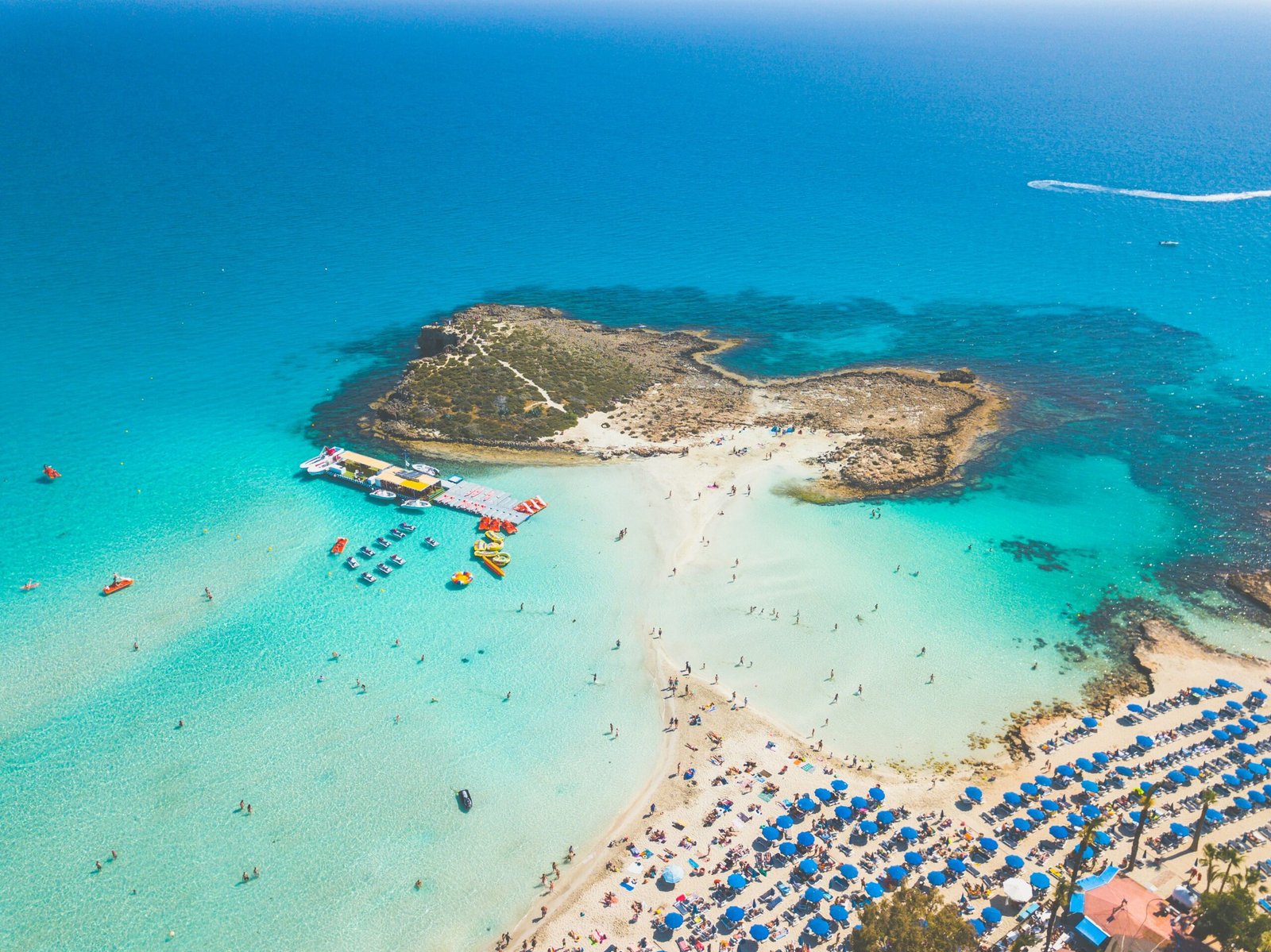Location and Surface Area
Cyprus is an island country located in the Eastern Mediterranean, south of Turkey and west of Syria and Lebanon. It is the third-largest island in the Mediterranean Sea, with a total surface area of approximately 9,250 square kilometers.
Climate
Cyprus enjoys a Mediterranean climate with hot, dry summers and mild winters. Summers, from June to September, are characterized by high temperatures, often reaching over 30 degrees Celsius (86 degrees Fahrenheit). Winters, from December to February, are cooler and wetter, with temperatures averaging around 15 degrees Celsius (59 degrees Fahrenheit).
Fauna and Flora
Cyprus is home to a diverse range of flora and fauna. The island boasts over 1,800 plant species, including the endemic Cyprus cedar and Cyprus orchid. Wildlife enthusiasts can spot various species such as mouflon, foxes, hares, and reptiles like snakes and lizards. The coastal areas are also rich in marine life, making it a great destination for diving and snorkeling.
Attractions
Cyprus offers a wealth of attractions for visitors. History buffs can explore ancient ruins and archaeological sites, including the UNESCO World Heritage Sites of Paphos and Choirokoitia. The island’s stunning coastline is dotted with beautiful beaches and crystal-clear waters, perfect for sunbathing and water sports. Nature lovers can venture into the Troodos Mountains, known for their picturesque villages and hiking trails.
Population and Languages
Cyprus has a population of approximately 1.2 million people. The official languages are Greek and Turkish, reflecting the island’s divided status. English is widely spoken and understood, particularly in tourist areas, making it easy for visitors to communicate and navigate their way around.
Culture and Customs
The culture of Cyprus is a blend of Greek, Turkish, and Middle Eastern influences. The island has a rich history dating back thousands of years, which is evident in its traditions, music, and cuisine. Cypriots are known for their warm hospitality and friendliness towards visitors. It is customary to greet others with a handshake and maintain eye contact during conversations.
Hospitality
Hospitality is highly valued in Cypriot culture. Visitors can expect to be welcomed with open arms and treated with genuine warmth and kindness. Cypriots take pride in their ability to make guests feel at home, whether it’s in hotels, restaurants, or local homes.
Main Cities
The main cities in Cyprus include Nicosia, the capital and largest city, Limassol, Larnaca, Paphos, and Famagusta. Each city offers its own unique charm and attractions, ranging from historical landmarks to vibrant nightlife and shopping districts.
Airports and Airlines
Cyprus is served by two international airports: Larnaca International Airport and Paphos International Airport. These airports are well-connected to major cities in Europe, the Middle East, and beyond. Several airlines, including national carriers and low-cost carriers, operate regular flights to and from Cyprus, providing convenient travel options for visitors.
Currency and Visa
The official currency of Cyprus is the Euro (EUR). Visitors can easily exchange their currency at banks, exchange offices, or ATMs throughout the country. As for visas, requirements vary depending on the visitor’s nationality and purpose of visit. Many countries, including those in the European Union and the United States, enjoy visa-free travel to Cyprus for short stays. It is advisable to check the specific visa requirements before traveling.
Conclusion
Whether you are planning a leisurely vacation, a business trip, or considering studying or working in Cyprus, this beautiful island offers a wide range of attractions, a welcoming culture, and a pleasant Mediterranean climate. From its stunning beaches to its rich history and warm hospitality, Cyprus has something for everyone.

